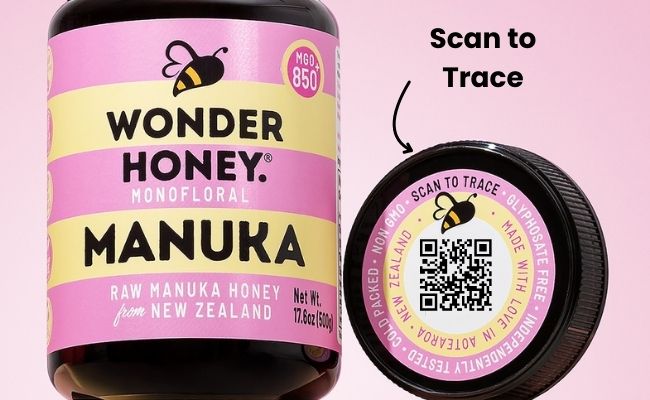
Get your Daily Dose of Manuka
You may not realize that incorporating manuka honey into your daily routine can offer numerous health benefits. This powerful superfood, derived from the nectar of the manuka tree in New Zealand, is known for its exceptional antibacterial properties and may help to relieve digestive issues, boost your immune system, and promote wound healing. However, be cautious, as not all manuka honey is created equal—look for those with a high UMF rating to ensure you are getting the purest and most potent form. Embracing a daily dose of manuka honey can remarkably transform your health.
Key Takeaways:
- Manuka Honey Benefits: Known for its unique antibacterial properties, manuka honey can support overall health and immune function.
- Natural Remedies: Often used as a home remedy, it can aid in soothing sore throats and healing minor wounds.
- Dose Appropriateness: A daily dose of manuka honey can vary; it's important to find the right amount that fits your health needs.
- Quality Matters: Choose high-quality manuka honey with a UMF (Unique Manuka Factor) rating for effective results.
- Versatility: It can be enjoyed in various ways, such as in tea, smoothies, or simply by the spoonful.
What is Manuka Honey?
For those seeking natural health solutions, manuka honey stands out as a unique product derived from the nectar of the manuka tree, native to New Zealand. This honey is celebrated not only for its rich flavor but also for its remarkable healing properties, setting it apart from regular honey varieties. Its complex composition includes various compounds that contribute to its distinctive characteristics and potential health benefits.
Origins and Production
Manuka honey is produced by bees that pollinate the flowers of the manuka tree (Leptospermum scoparium), primarily found in New Zealand. The production process is labor-intensive and highly regulated, ensuring that only honey with a high concentration of beneficial compounds meets the strict criteria for manuka honey certification. As such, its rarity and specific geographic origin contribute to its esteemed status in the natural health community.
Unique Properties and Benefits
Across the globe, manuka honey is renowned for its antimicrobial, anti-inflammatory, and antioxidant properties, making it a powerful ally in holistic health practices. Research indicates that it may aid in wound healing, digestive support, and even boost your immune system. The honey’s unique composition, particularly its high levels of methylglyoxal (MGO), significantly enhances its efficacy beyond regular honey.
Honey carries unique healing properties due to the presence of methylglyoxal, which is responsible for many of its beneficial effects. This powerful compound allows you to harness its antibacterial effects, making it an excellent choice for soothing sore throats and accelerating the healing of minor wounds. Many users also appreciate its role in enhancing digestive health and providing a natural boost to energy levels. Incorporating manuka honey into your daily routine can significantly enhance your overall well-being while indulging in its delicious flavor.
Nutritional Profile of Manuka Honey
There's a compelling array of nutrients packed into Manuka honey that contributes to its impressive health benefits. This unique honey boasts natural sugars, carbohydrates, and a small amount of protein, making it a wholesome addition to your diet. Its distinct profile is not only flavorful but also rich in beneficial properties, promising to enhance your well-being.
Vitamins and Minerals
Vitamins and minerals present in Manuka honey include important nutrients such as vitamin C, calcium, and iron, which play an important role in supporting your immune system and overall health. By incorporating this superfood into your daily routine, you can boost your nutritional intake effortlessly.
Antioxidants and Antimicrobial Components
With its remarkable antioxidants and antimicrobial components, Manuka honey stands out in natural remedies. This honey contains a unique compound called methylglyoxal (MGO), known for its potent antibacterial properties, making it effective against harmful bacteria.
In fact, the presence of MGO in Manuka honey is what sets it apart from conventional honey. Studies have shown that it can combat MRSA and other resistant strains of bacteria, thus assisting in wound healing and infection prevention. Moreover, the antioxidants within help to neutralize harmful free radicals in your body, promoting a healthier immune response. Incorporating Manuka honey into your daily regimen may also support your gut health, enhance skin healing, and contribute to overall wellness.
Health Benefits of Daily Manuka Honey Consumption
Keep your wellness in check with the powerful benefits of daily manuka honey. Incorporating Mānuka Honey MGO 400+ into your routine can help enhance your overall health, providing natural support for your immune system, digestive processes, and even skin care. With its unique properties, this remarkable honey can be a great addition to your daily diet, helping you achieve better health outcomes organically.
Immune Support
Below, you’ll discover how manuka honey can bolster your body's defenses. Regular consumption may enhance your immune response, helping to fight off common illnesses and infections more effectively. Its antibacterial and antiviral properties support your body's natural ability to heal and protect itself.
Digestive Health
Among the many advantages, manuka honey promotes a healthier digestive system. It aids in soothing discomfort, reducing inflammation, and balancing gut bacteria. This natural remedy provides the support needed for proper digestion, leading to improved overall gastrointestinal health.
Indeed, the prebiotic effects of manuka honey can further enhance your digestive health. By nourishing beneficial gut flora, it assists in maintaining a balanced microbiome. This balance contributes to better nutrient absorption and can help alleviate issues such as bloating and constipation.
Skin Care and Wound Healing
Skin problems can significantly affect your self-esteem, but manuka honey can be a game-changer. It not only moisturizes but also possesses powerful healing properties, making it effective for treating minor wounds and skin irritations.
Also, the natural antibacterial and anti-inflammatory properties of manuka honey play a pivotal role in skin care. Applying it topically can accelerate healing, reduce scarring, and help with various skin conditions, including acne and eczema. Incorporating manuka honey into your skin regimen is a reliable way to achieve healthier and more radiant skin.
How to Incorporate Manuka Honey into Your Daily Routine
Many people find incorporating manuka honey into their daily routine both easy and enjoyable. You can start your day with a spoonful of manuka honey or add it to your morning tea. Consider pairing it with yogurt or smoothies, or use it to sweeten up your favourite recipes.
Culinary Uses
To enhance your meals, consider drizzling manuka honey over fresh fruits, oatmeal, or overnight oats for added flavor and health benefits. You can also use it as a natural sweetener in salad dressings, marinades, and baking, allowing the unique taste of manuka honey to elevate your dishes while providing its remarkable properties.
Dosage Recommendations
One effective way to experience the benefits of manuka honey is to consume it daily. Aim for 1 to 2 teaspoons (5-10 grams) of high-quality manuka honey, ideally with a UMF rating of at least 10+, to enjoy its health-promoting properties while minimizing any potential side effects.
It’s advisable to start with a small amount and gradually increase your intake while monitoring your body’s response. Be cautious as excessive consumption may lead to digestive discomfort or other issues. Also, if you have diabetes or other health concerns, consult with your healthcare provider before adding manuka honey to your routine. This way, you can safely enjoy the benefits of this powerful superfood.
Potential Side Effects and Considerations
Your experience with manuka honey may come with potential side effects worth considering. While generally safe for most, some individuals could face mild gastrointestinal discomfort, including bloating or diarrhea. Always listen to your body and consult with a healthcare professional if you have any concerns or experience adverse reactions.
Allergies and Sensitivities
Between individuals with allergies to bees or pollen, manuka honey could potentially trigger allergic reactions. Symptoms may range from mild hives to severe anaphylactic responses. Therefore, if you have known allergies, it's advisable to approach manuka honey cautiously or seek medical advice before inclusion in your diet.
Interaction with Medications
Side effects can also arise from interactions between manuka honey and certain medications. For example, honey may enhance the effects of blood sugar-lowering medications, potentially leading to hypoglycemia, or could interfere with blood-thinning medications, increasing the risk of bleeding.
Considerations surrounding manuka honey’s interaction with medications are vital for your safety. Some people using diabetes medications should closely monitor their blood sugar levels, as manuka honey can influence glucose control. Additionally, if you are on anticoagulants or blood-thinning drugs, consult your healthcare provider before incorporating manuka honey, as it may alter the effectiveness of these treatments. Awareness of these potential interactions will help you make informed choices about your health.
Choosing Quality Manuka Honey
To ensure you receive the best benefits from Manuka honey, selecting a high-quality product is necessary. Look for honey that has been independently tested and certified, providing you with assurance of its authenticity and potency. A reputable brand often displays clear labeling, indicating the honey's origins and quality standards. Whether you plan to use it for health benefits, culinary purposes, or skincare, investing in a quality product will enhance your experience and results.
Understanding UMF and MGO Ratings
After exploring Manuka honey options, it’s necessary to understand the UMF (Unique Manuka Factor) and MGO (Methylglyoxal) ratings. These ratings signify the potency and quality of the honey. UMF is a measure of the non-peroxide antibacterial activity found in Manuka honey, while MGO indicates the concentration of Methylglyoxal, the compound responsible for its antibacterial properties. Higher values in both ratings indicate a more effective honey, which can yield better health benefits.
Trusted Brands and Certifications
Certifications play an important role in identifying quality Manuka honey. Look for brands that have received verification from recognized bodies such as the UMF Honey Association or the MGO Certification program. These certifications help assure that the honey you choose meets specific purity and potency standards. Well-known brands often invest in reliable testing, so always check for these affiliations before purchasing. To enjoy the full spectrum of benefits, it’s wise to select honey that is both certified and from a reputable source.
Understanding these factors can significantly impact your choice of Manuka honey. Choosing products with the UMF and MGO certifications ensures that you are getting the genuine article, free from fillers or lower-grade honey. By selecting brands that prioritize transparency and offer verified certifications, you can be more confident in their effectiveness and quality. This diligence not only enhances your health regimen but also allows you to enjoy the positive attributes of authentic Manuka honey fully.
To wrap up
The daily inclusion of Manuka honey in your diet can offer a multitude of health benefits, from boosting your immune system to enhancing your digestive health. By choosing high-quality, UMF-certified Manuka honey, you can harness its natural antibacterial properties and support your overall wellness. Whether you enjoy it on toast, in smoothies, or as a natural sweetener, incorporating Manuka honey into your routine can elevate your health journey and provide an enjoyable way to nourish your body.
FAQ
Q: What is Manuka honey?
A: Manuka honey is a unique type of honey that originates from the flowers of the Manuka tree (Leptospermum scoparium) native to New Zealand and Australia. It is known for its distinctive taste, dark color, and potential health benefits, which are attributed to its high levels of methylglyoxal (MGO), a compound with antibacterial properties.
Q: How much Manuka honey should I consume daily?
A: The recommended daily dosage of Manuka honey can vary depending on individual health needs and preferences. Generally, a teaspoon (about 5-8 grams) is a common amount for maintenance. However, some people may choose to consume up to two tablespoons a day for health benefits, especially if dealing with specific health issues. It’s advisable to consult with a healthcare professional for personalized guidance.
Q: What are the health benefits of incorporating Manuka honey into my daily routine?
A: Manuka honey is celebrated for its potential health benefits, which include antibacterial properties that may help combat infections, soothing sore throats, aiding digestive health, and promoting wound healing. Its antioxidant content can also support overall well-being. Regular consumption may contribute positively to your health, although it is not a substitute for medical treatment.
Q: Can I use Manuka honey in cooking or baking?
A: Yes, Manuka honey can be used in cooking and baking, but it's recommended to avoid high heat to preserve its beneficial properties. You can use it as a substitute for regular sugar in recipes, add it to smoothies, or use it in salad dressings. For maximum benefits, consider adding it to dishes after they have cooked or gently warm it in recipes where moderate heat is used.
Q: Are there any side effects or precautions to consider when consuming Manuka honey?
A: While Manuka honey is generally safe for most people, there are some precautions to keep in mind. Individuals with allergies to bees or honey should avoid it. Additionally, due to its natural sugar content, those with diabetes should monitor their blood sugar levels and consult with their doctor prior to incorporating it into their diet. Pregnant women should also discuss its use with their healthcare provider.







Leave a comment
This site is protected by hCaptcha and the hCaptcha Privacy Policy and Terms of Service apply.